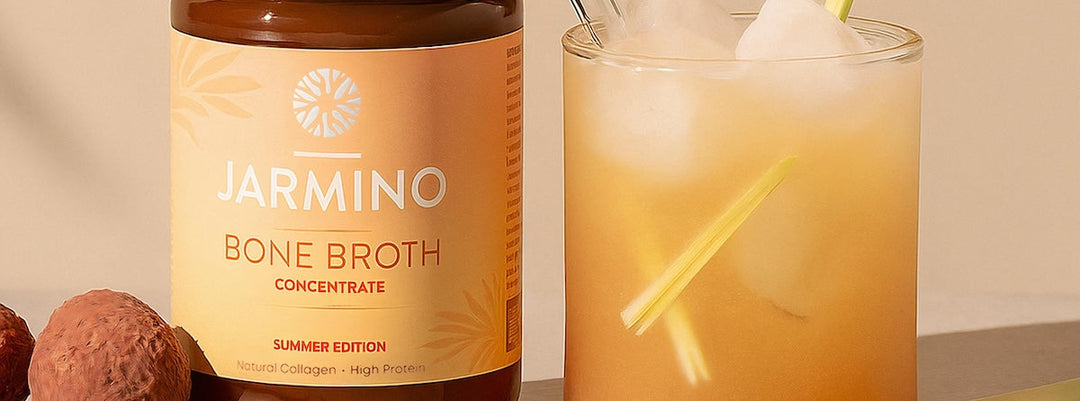Are you aware that there are different types of collagen?
Collagen is, next to water, the most abundant substance in our body and an elementary building block of skin, tendons and bones. The different types of collagen contain different amino acids that perform separate tasks in the body.
We introduce the most important collagen types to you.
Overview of all collagen types 1 to 5
Collagen types 1 & 3 for hair, skin, nails and bones
Over 90 percent of the collagen in the body consists of type 1 & 3 collagen.
These two collagen types can be:
- Minimize fine lines and wrinkles and improve skin elasticity
- Support the bone matrix (36% of the bone consists of type 1 and 3)
- Thicken fine hair, slow down hair loss
- Improve blood circulation
- Promote the production of glycine, which builds lean muscle
Best sources of collagen type 1&3:
- Marine / Fish Collagen
- Bovine Collagen
- Bone Stock
- Protein & high protein foods such as fish and beef
More than 90 percent of the collagen in the body consists of collagen types 1 & 3, which are among the most important amino acids of these types:
Glycine - the most common amino acid in collagen requires more serine than our body can produce naturally. Studies indicate the need for glycine supplementation to achieve ideal metabolic processes (1)
Proline - a non-essential amino acid synthesized from glycine, important for the function of joints and tendons (2)
Hydroxyproline - amino acid that plays an essential role in the stability of collagen (3)
Collagen type 2 for joints and cartilage
Collagen type 2 accounts for 50-60% of the protein in cartilage and 85-90% of the collagen in joint cartilage. It can:
- reduce knee buckling damage
- Support back, jaw and joints
- And supplies glucosamine, chondroitin and hyaluronic acid
Best sources of collagen type 2:
- Bone Broth
- Chicken Collagen
- Bovine Collagen
- Protein-rich food
Collagen type 4 for wound healing
This less common type of collagen helps to filter the kidneys and other organs. Type IV collagen is found as building blocks in various layers of skin that surround our muscles, organs and fat cells. Type IV collagen is formed in layers rather than in a tight helix structure because it lacks the amino acid glycine. It is believed that this type of collagen is also important for wound healing and embryo formation.
Best sources of collagen type 4:
- Protein
- Protein-rich food
- Collagen type 5 for hair and skin
Collagen type 5 is found in some layers of the skin, hair and especially in the tissue of the placenta. It can:
- promote hair growth
- Improve vision and eye health
- And is important for newborn and embryonic development
Best sources of collagen type 5:
- Protein-rich foods like protein
- Collagen (beef, chicken, marine)
Collagen type X for hair and skin
Collagen type X supports joints, bones and healthy cartilage.
It is involved in bone formation and as a reliable marker for cartilage.
A lack of this collagen can lead to bone-related diseases such as osteoporosis.
Best sources of collagen type 10:
- Bone Broth
- Collagen (beef, chicken, marine)
Are all collagen types important?
Basically all collagen types are important and should be taken in through a balanced diet rich in collagen. Since 90% of the collagen in the body consists of types 1 and 3, an adequate supply of these two collagen types is by far the most important. Since our western diet generally contains very little collagen, it makes sense to specifically reintegrate collagen into the diet. Bone broth or a high-quality collagen powder is best suited for this.
(1) http://www.ncbi.nlm.nih.gov/pubmed/20093739
(2) https://pubchem.ncbi.nlm.nih.gov/compound/L-proline
(3) http://emedicine.medscape.com/article/2087938-overview





